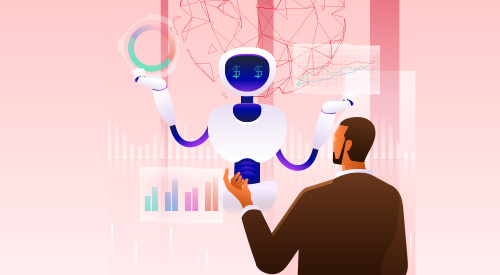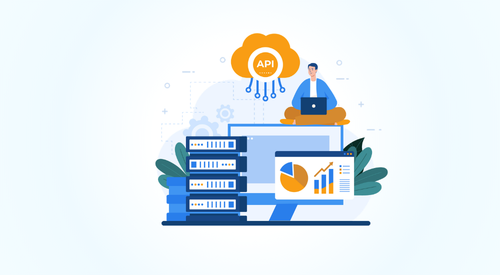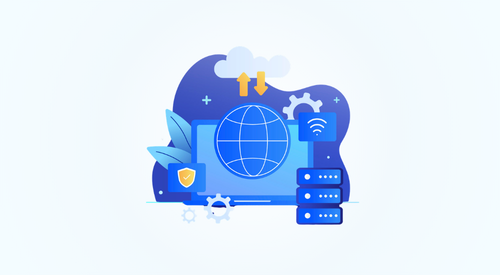

With the ongoing developments in customer service and technology, businesses undergo immense pressure to offer excellent customer experiences while maintaining their operational efficiency. As businesses manage both effectively, conversational AI serves as a strategic necessity for the current scenario. By enabling smooth human-machine interaction, conversational AI is changing how businesses engage with their customers, automate the workflow processes, and drive organizational growth. Our blog elaborates on the intricacies of conversational AI, differentiating it from generative AI, examining the benefits, and showing real-world applications.
Elevate Your Customer Experience with Niveus
What is Conversational AI?
Did you know that conversational AI bots can help reduce business costs up to 40%? But do businesses understand what exactly conversational AI is? Basically, it is essentially technology that allows computers to understand and respond to human language in a natural and engaging manner, which feels human. Unlike the stiff, rule-based chatbots of old, conversational AI uses advanced techniques like natural language processing (NLP) and machine learning to have more human-like conversations.
Imagine a virtual assistant who understands what you say and foresees your needs to provide exceptional service any time of the day. This is not a scene from a science fiction movie, but conversational AI in real life. Conversational AI powered by complex algorithms and huge reams of data is changing how businesses communicate with their customers. However, they are not to be confused with their close cousins GenAI
Conversational AI vs Generative AI: What’s the Difference?
Even though Conversational AI and Generative AI both are the subsets of Artificial Intelligence, they serve distinct purposes. Conversational AI is more of a skilled conversationalist. It understands and responds to human language in a way that feels natural, much like interacting with another person.
Generative AI, however, is more like a creative artist. It’s capable of generating new content, such as text, images, or code, based on the information it has been trained on. While it can be involved in conversations, its primary function is to create rather than converse.
While they may all seem similar at first glance, their difference lies at the core of what a business may well be seeking while attempting to effectively put up these technologies.
Conversational AI Models: The Brains Behind the Chat
How does a conversational AI engine actually work? Well, conversational AI models are the answer. These models are the brains behind the whole operation. There are primarily three types of these models:
- Rule-based models: These are the traditional chatbots that follow a strict set of predefined rules. They can be effective for simple tasks but struggle with complex queries or unexpected inputs.
- Machine learning models: These models learn from vast amounts of data to improve their responses over time. They can handle more complex conversations and adapt to different user styles.
- Hybrid models: Combining the best of both worlds, hybrid models use a combination of rules and machine learning to create more robust and versatile conversational AI systems.
At the heart of these models are two key components: natural language understanding (NLU) and natural language generation (NLG). NLU is responsible for interpreting user input and extracting meaning, while NLG focuses on crafting human-like responses.
The major strength of conversational AI models is the huge reams of data on which they are trained. Trained on extensive datasets, the model becomes adept at deciphering and replying in human languages.
Conversational AI Benefits
Conversational AI can change the entire communication dimension for businesses and their customers. It can massively enhance customer experience and increase business efficiency, providing 24/7 customer support, automating tasks, and personalization of interactions.
Following are the benefits of conversational AI benefits:
- Improved customer experience: One of the most apparent benefits of conversational AI is enhanced customer experience. With the ability to interact with customers 24/7, you can provide instant support and address their queries promptly. This leads to increased customer satisfaction and loyalty.
- Increased efficiency and cost savings: By automating routine tasks and handling repetitive inquiries, conversational AI frees up human agents to focus on more complex issues. This not only boosts efficiency but also reduces operational costs.
- Personalized interactions: Conversational AI can analyze customer data to deliver tailored recommendations and experiences. By understanding individual preferences, businesses can offer highly personalized interactions that build strong customer relationships.
- Data collection and analysis: Every interaction with a conversational AI system generates valuable data. This data can be analyzed to identify trends, customer preferences, and areas for improvement. By harnessing the power of data, businesses can make informed decisions and optimize their operations.
Conversational AI in Action
Conversational AI has the potential to transform industries. From enhancing customer experiences to streamlining operations, the applications are vast and varied.
Real World Applications of Conversational AI
Following are some real world examples of conversational AI in action:
- Customer service: Many businesses are leveraging conversational AI to provide 24/7 customer support. Chatbots can handle common inquiries, troubleshoot issues, and even process returns, freeing up human agents to focus on more complex problems.
- E-commerce: Online retailers are using conversational AI to create personalized shopping experiences. Chatbots can recommend products, answer questions about product features, and assist with the checkout process.
- Healthcare: Conversational AI is making waves in the healthcare industry by providing medical information, scheduling appointments, and even offering preliminary diagnoses. This technology has the potential to improve patient care and reduce wait times.
- Financial services: Banks and financial institutions are employing conversational AI to provide account information, process transactions, and offer financial advice. Chatbots can help customers manage their finances efficiently and securely.
While these are just a few examples, the possibilities for conversational AI are endless. As technology continues to advance, we can expect to see even more innovative applications emerge in the years to come.
Niveus Solutions: Your Conversational AI Partner
Harnessing the power requires expertise and experience. This is where Niveus Solutions comes in.
Empowering Businesses with Conversational AI
At Niveus Solutions, we specialize in helping businesses utilize the full potential of conversational AI. With our deep understanding of the technology and industry best practices, we deliver tailored solutions that meet your specific needs.
Our comprehensive range of services includes:
- AI development: We create cutting-edge conversational AI models that are optimized for your business goals.
- Chatbot implementation: Our experts design and deploy seamless chatbot experiences across various platforms.
- Training and support: We provide ongoing training and support to ensure the success of your conversational AI initiatives.
Whether you’re a small startup or a large enterprise, Niveus Solutions can help you unlock the power of conversational AI. Our team of AI specialists will work closely with you to understand your business challenges and develop a customized solution.
Conclusion
Conversational AI is no longer a concept of the future, it is one of the most powerful tools businesses can use to improve customer experiences, enhance efficiency, and boost growth. Differentiating between conversational and generative AI will allow businesses to make better decisions while implementing this technology effectively.
We have discussed the benefits accruing from conversational AI, from improved customer satisfaction to gaining valuable data insights. Real-world applications across industries make a case for the enormous potential this technology has to change how we do business.
Ready to elevate your business? Contact us today.











